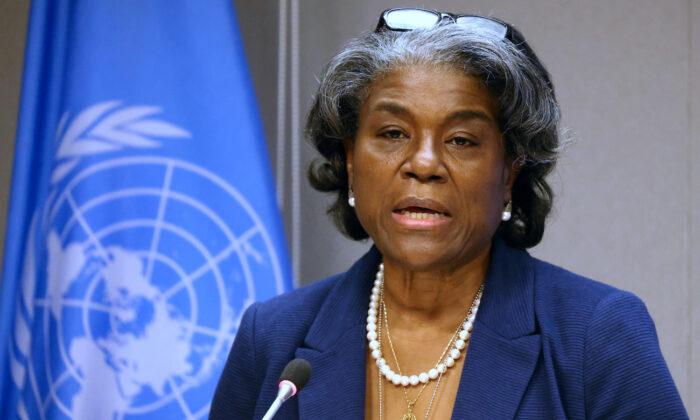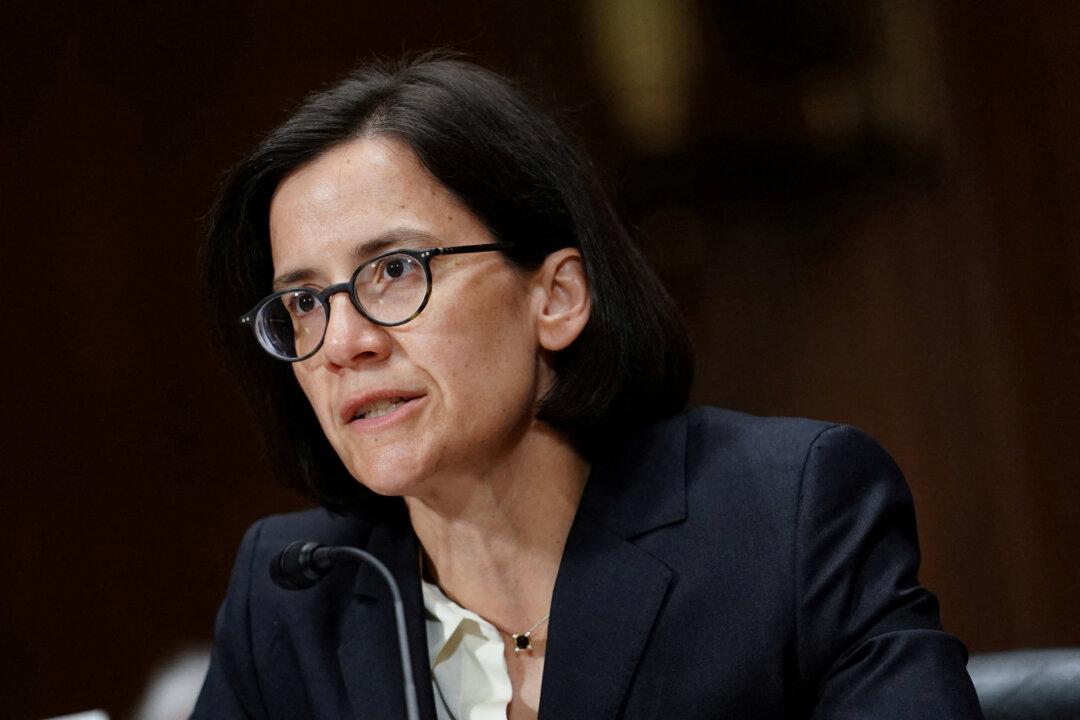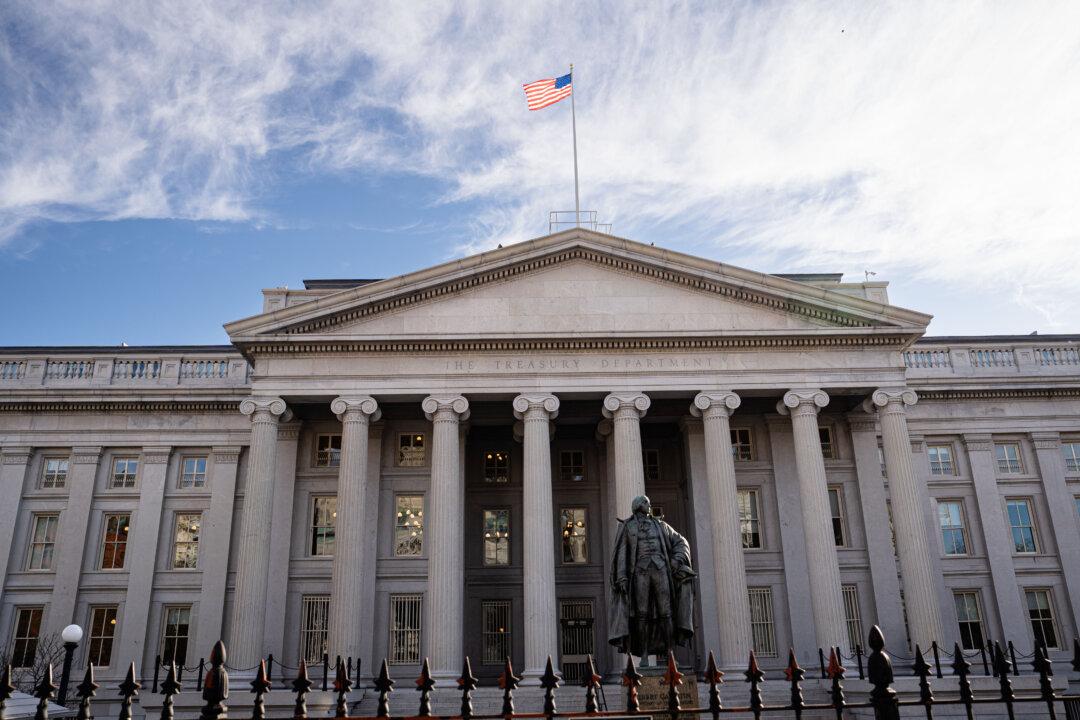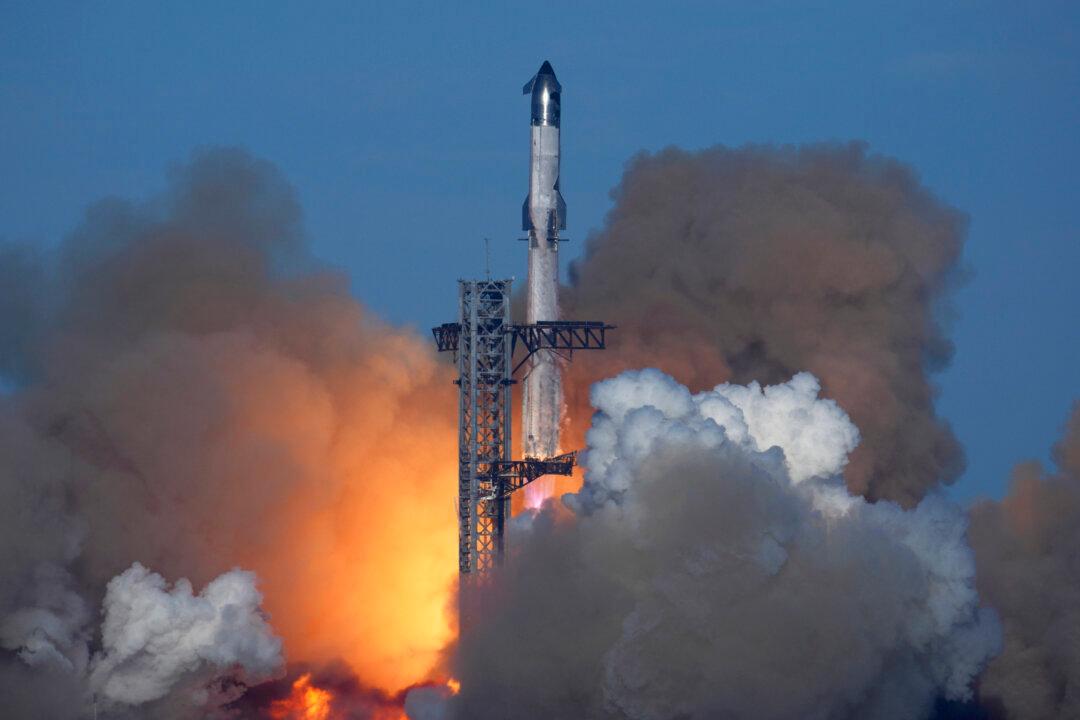The United States would propose a resolution “to update and strengthen” U.N. sanctions in response to North Korea’s “increasingly dangerous provocations,” U.S. ambassador to the United Nations Linda Thomas-Greenfield said Friday.
“It is clear that remaining silent—in the hope that the DPRK would similarly show restraint—is a failed strategy. We must pivot to a successful one,” she said, using the official acronym for North Korea.
Thomas-Greenfield said that Washington would propose a resolution to tighten Security Council sanctions against North Korea, though she did not specify what the new sanctions would be.
“The sanctions regime has undeniably restricted the DPRK’s unlawful weapons advancements. So now is not the time to end our sanctions. Now is the time to enforce them,” she added.
North Korea has been subjected to U.N. sanctions since 2006, which the U.N. Security Council has steadily stepped up over the years in a bid to cut off funding for Pyongyang’s nuclear weapons and ballistic missile programs.
China and Russia, however, have urged for an easing of U.N. sanctions to improve North Korea’s humanitarian situation and to encourage Pyongyang to resume denuclearization talks.
Russian deputy ambassador Anna Evstigneeva told the council that further sanctions would only harm North Korean citizens, while Chinese ambassador Zhang Jun suggested that Washington should make “an attractive proposal” to get Pyongyang back to dialogue.
The United States has been urging for a return for a dialogue, but Pyongyang accused Washington of pursuing “hostile policies” that it must withdraw before any talks can resume.
“Offering sanctions relief, without substantive diplomatic progress, would only funnel more revenue to the regime and accelerate the realization of its [weapons of mass destruction] and ballistic weapons goals,” Thomas-Greenfield added.
KCNA reported that Kim personally directed the missile launch to make the “whole world clearly aware” of the power of his strategic forces. He vowed to acquire “formidable military and technical capabilities unperturbed by any military threat” and to be “fully ready for a long-standing confrontation with the U.S. imperialists.”





